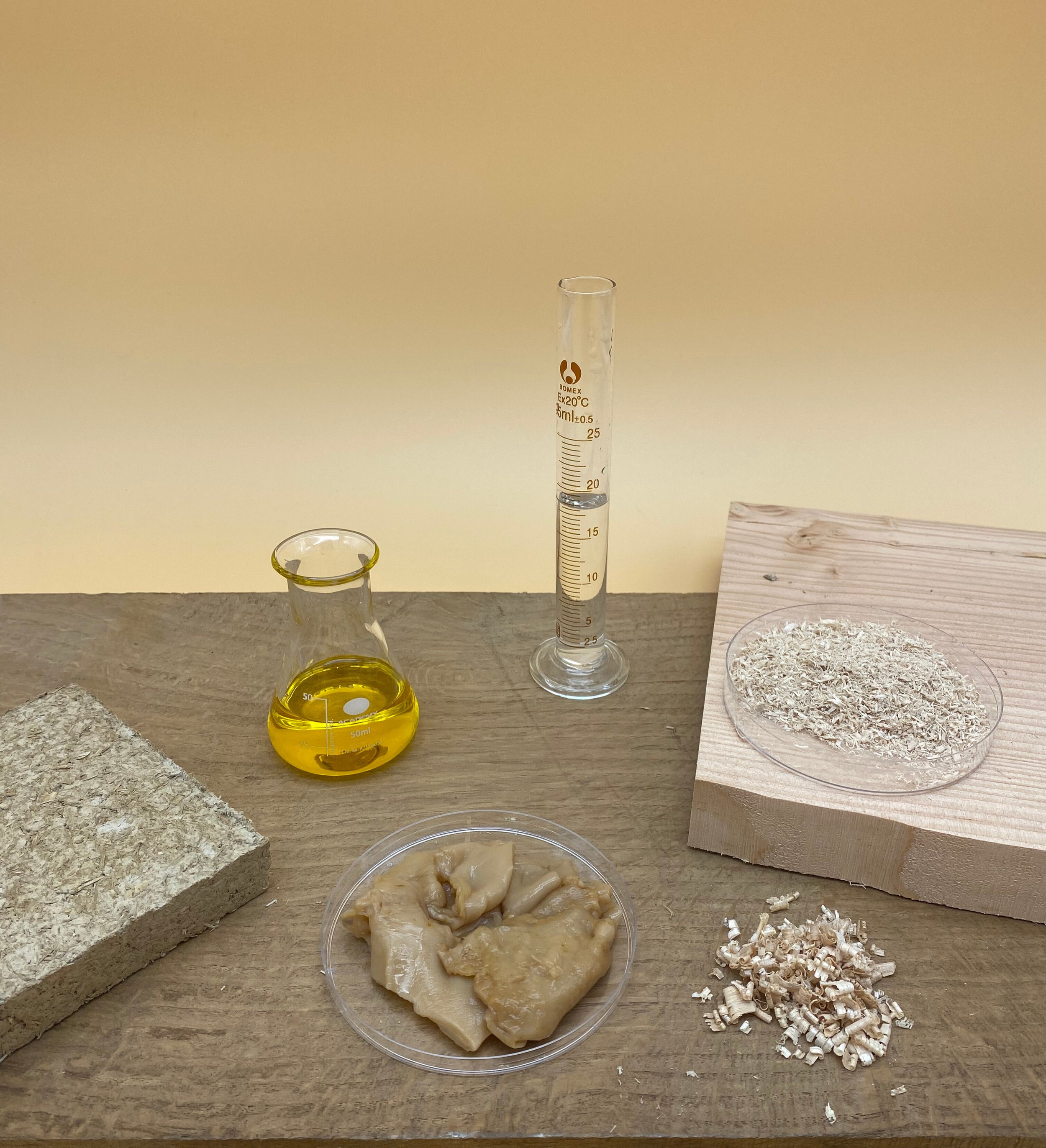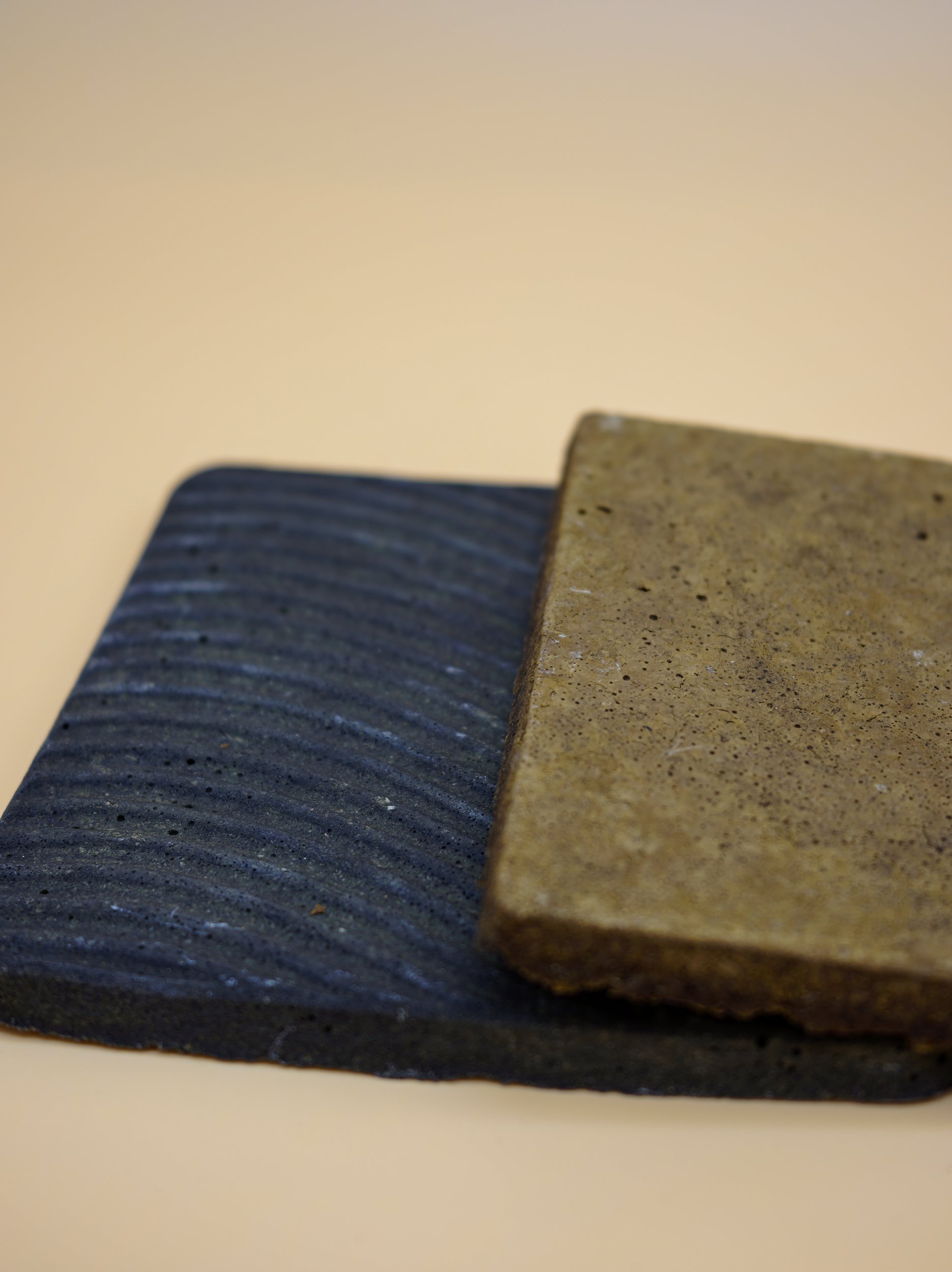
Wood Waste Composite Collaboration through Future Frontiers Funding at Cranfield University
Over the last 2 years, in collaboration with Jan Waterston of Jan Waterston Furniture, we have developed a 100% bio-based, hard surface material derived entirely from natural resources. This project focused on exploring new possibilities for sustainable material innovation within the furniture and interiors sector, demonstrating how fine woodworking waste can be repurposed into a viable, high-performance material while supporting circular and regenerative design practices.
The goal of this research was to create a fully biodegradable composite material using hardwood waste generated from Jan Waterston’s furniture studio. By integrating circular design principles with hands-on material experimentation, we aimed to develop a sustainable alternative to traditional composites that aligns with small-batch and one-off furniture production methods.
Supported by two rounds of funding from Cranfield University’s Future Frontiers Fund, this project facilitated the purchase of essential equipment, collaboration with specialists, and technical testing to evaluate the material’s strength, longevity, and environmental impact.
Our research focused on creatively addressing the challenge of waste within a small-scale production setting by developing a material that is not only functional but also rooted in regenerative practices. By leveraging the natural properties of fine hardwood waste, we explored natural binding agents to replace synthetic resins, low-impact processing techniques suited for small-scale workshops, and end-of-life solutions, ensuring the material can return safely to the environment
Through extensive material testing and iteration, we successfully produced a prototype panel material with significant potential for application in high-end furniture and interiors. The material offers. Through specialist engagement and technical testing, we gathered valuable data on structural integrity and degradation properties, ensuring its viability as a sustainable alternative.
This project is more than just material innovation; it is an exploration of how waste can be transformed through craft, design, and making. By embedding circularity into the furniture-making process, we seek to shift industry perspectives on material value—moving beyond sustainability toward truly regenerative practices.
Jan Waterston Furniture | Future Frontiers Fund
Wood Composite | 07.2024 - 01.2025 | Jan Waterston Furniture






